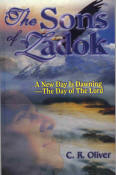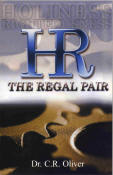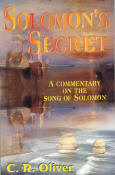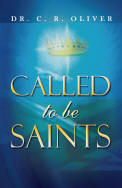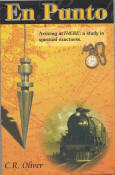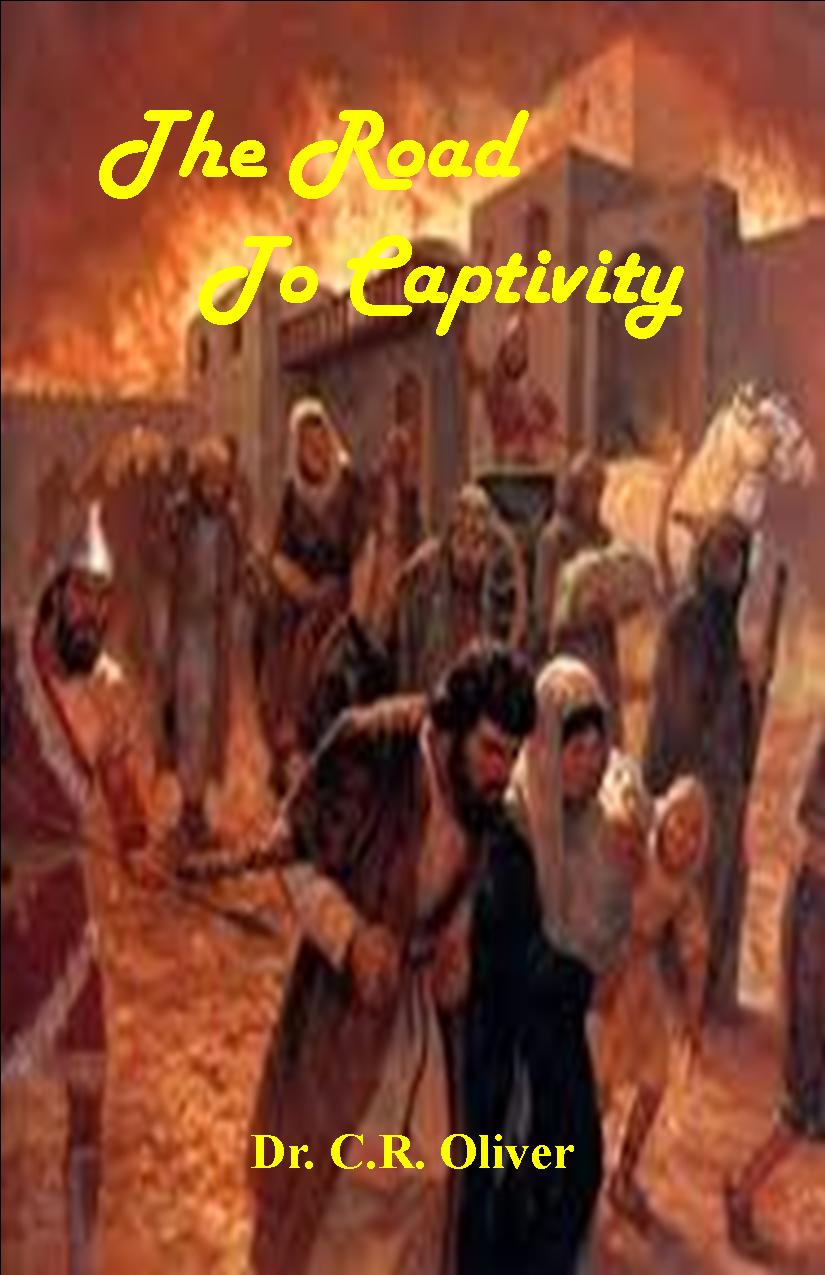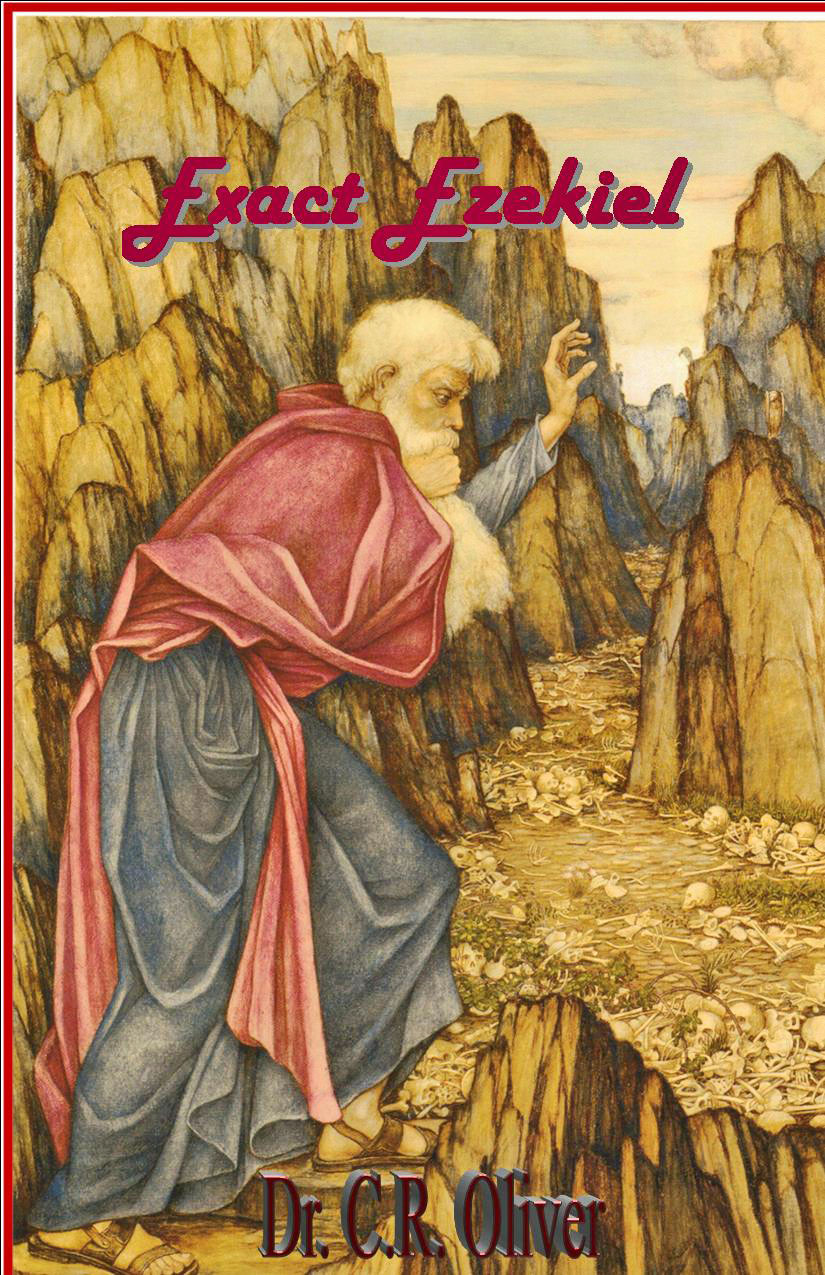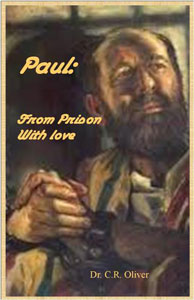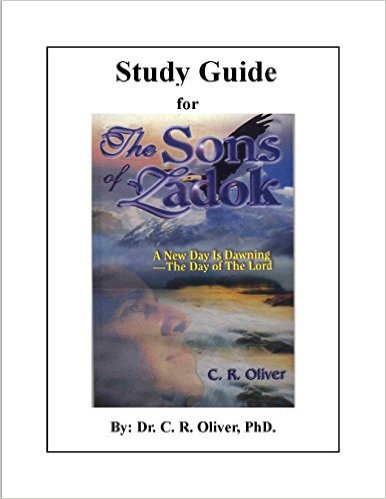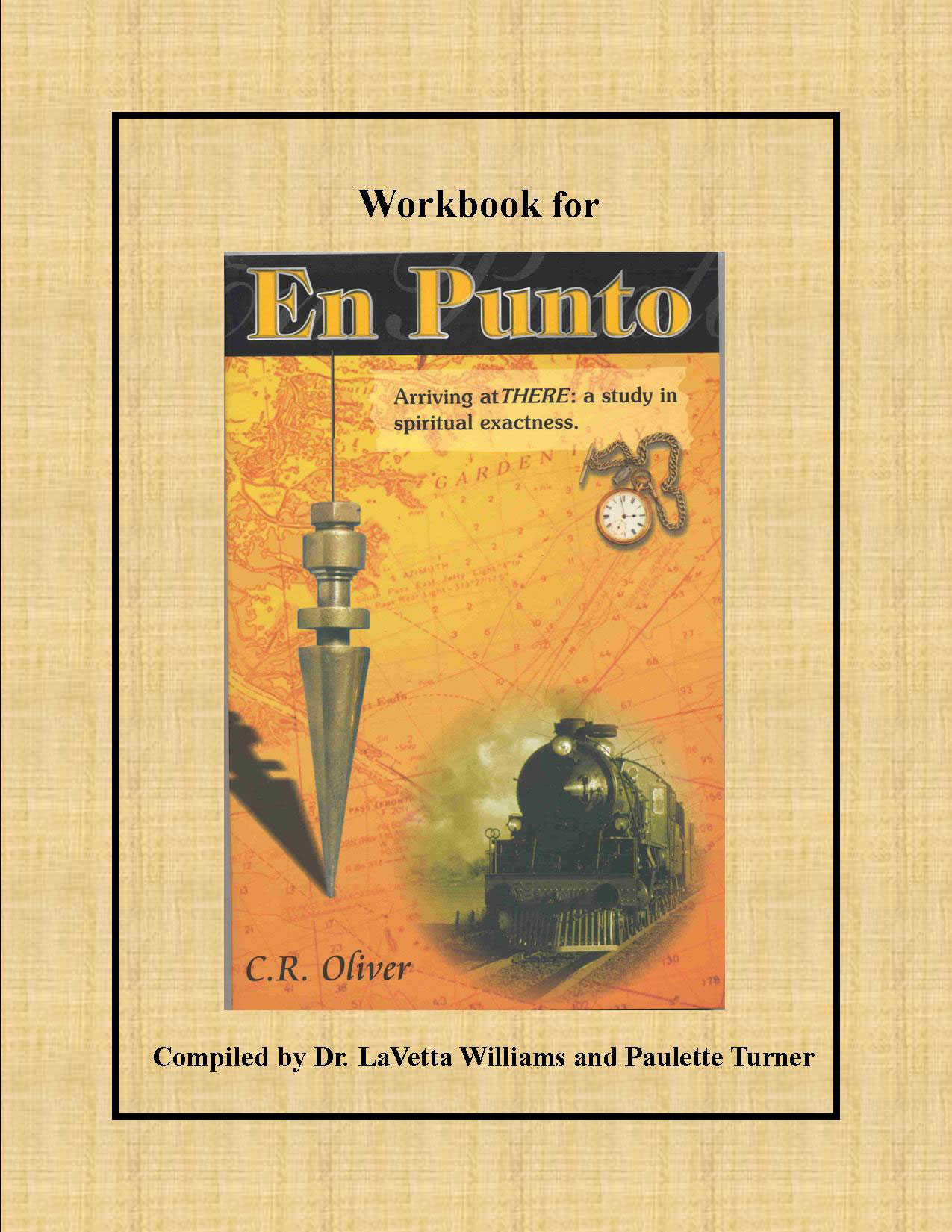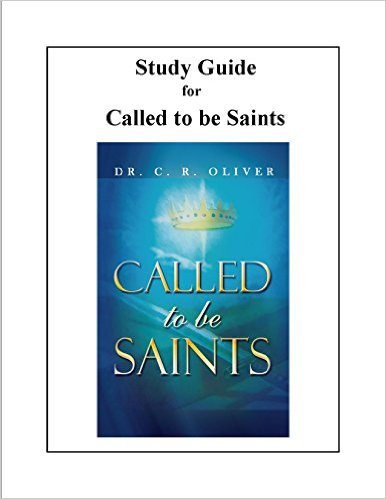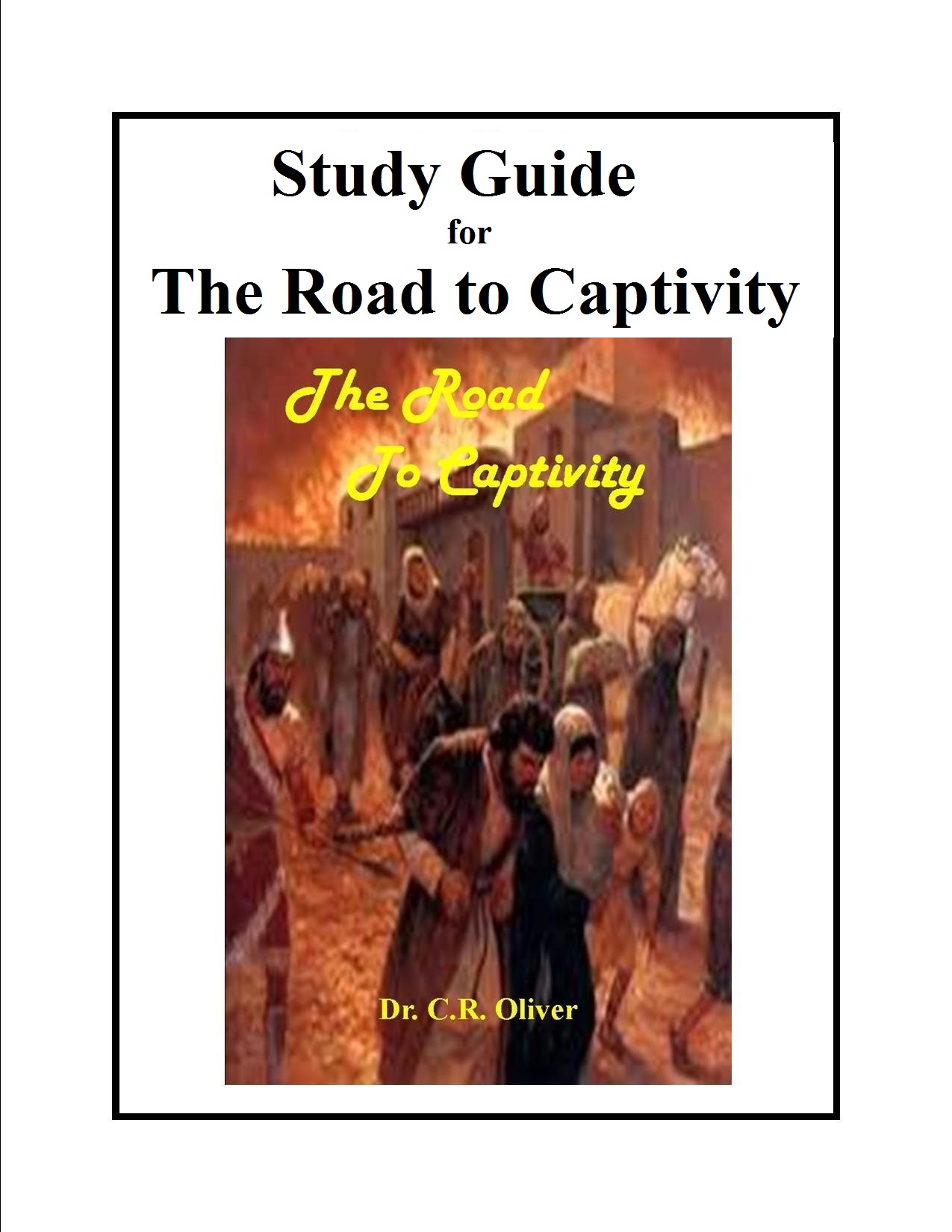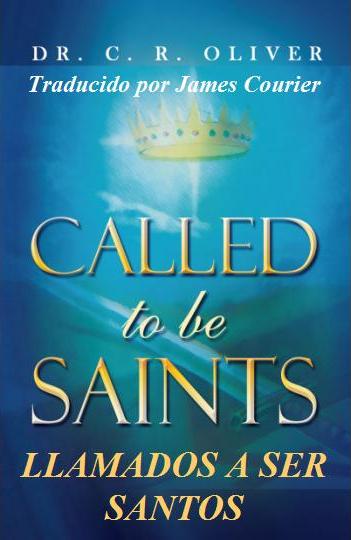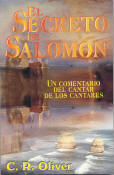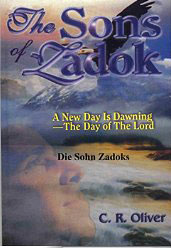"Studies of the Spirit in the New Testament - I, II Thessalonians"
ZADOK PUBLICATIONS - Dr. C. R. OLIVER
November 1, 2020

|
ZADOK PUBLICATIONS MONTHLY NEWSLETTER
November 1, 2020 Studies of the Spirit in the New Testament I, II Thessalonians You may watch this Newsletter in a video HERE.
Introduction: The Jerusalem council in 50 AD, as proclaimed in Acts 15:28, gave their judgment as to the incorporation of the Gentiles (heathen) into the body of believers. I personally believe the book of Galatians (49AD) precipitated the necessity for the elders to address this issue. Now, following the edict from the council, Paul produced the epistles of I, II Thessalonians in 51AD (during his 2nd missionary journey). I also believe these two books address what was decided in the council, for they embellish and clarify those rules.
Although we are not seeking to comment on the whole texts found in these two books, we will concentrate only on the places where the Spirit is mentioned; however, one's understanding of the Jerusalem council is most important. I Thessalonians:
Of course, the reader should acknowledge the whole Scriptural wrappings which inculcate these two venues. The spiritual doctrine that surrounds this passage ends with a statement which must be relied upon in these times in which we live.
This is such a great promise which regales above the chaos of our day. Notice how Paul stacks his opening words with items like, "work of faith," "labor of love," "patience of hope." His accolades were founded on their "election." Paul also wanted these Gentile believers to know the extent of their witness by naming at least two areas which were points of their evangelism: Macedonia and Achaia. Through these avenues, he introduces the doctrine of election. This is the first mention in the New Testament of "election." (Simon Peter, later on, mentions call and election [2 Peter 1:10] as does Paul in his later works.). What a profound doctrine this word conveys, whether standing alone or used in context with predestination. Foundational to the Reformers of the past, this doctrine became the bedrock of Presbyterian theology under the hand of John Calvin.
These heavy weight leaders of the Reformation made much of those passages where the Bible refers to believers being predetermined before the foundation of the world. It is like the "lamb slain before the foundation of the world" is coupled with the passages where Jesus acknowledged the disciples as being "given Him by His Father." These passages, along with many more, form a sense of destiny among believers. Election is little preached these days because it separates those who genuinely are born again and those who are not. Paul believed the Thessalonian church was launched from heaven, and it was to be a "first witness" to Gentiles who would become believers as the Spirit drew them in. (The church that believes they are elected by God for the work they are given, is a strong body [Strong enough for a reformation which lasted over 500 years and spread the gospel over the world]). A tertiary look into the word "election" is enough to thrill a believer.
"Divine selection" instantly bonds past believers with new ones and forms a unity achieved by no other means. To function as a New Testament church, it must be comprised of the "elect." If I accept my salvation as a work begun in heaven, before the world was created, it causes me to "know" the Bible and its promises are mine. (I am saved because the Lord saw me before I came to Him and, knowing all things, wrote my name in the book of life based on my free will being exercised.)
O' hallelujah! Observing the outcroppings from "election," one welcomes "joy in the Spirit."
When an anointed church casts their nets into the unbelieving world, using both the Word and the power of the Holy Spirit-they will reap a DIVINE CATCH. (Simon Peter saw this with the 5000 and the 3000 resulting from his appeal. This is why he cautioned in his epistle, to "make your call and election sure." Now is the time to review such in the church today!) In verse six, we see another aspect of being the elected; it is "Joy of the Holy Spirit." First, take a look at the varied aspects of "joy."
Using this construct, think of what a worship service would look like. There would be a church full of those who believe they have a divine destiny and operate in the power of the Holy Spirit giving praise to God. Talk about shouting, talk about testimony, talk about pouring out from humble hearts on fire with the Holy Ghost in raptured song and anointed words---there would arise a mighty JOY OF THE HOLY GHOST! (The modern church needs this!) First Thessalonians is filled with doctrinal truths for believers. Dropping down to the next Spirit passage, we encounter "Sanctification."
Sanctification incorporates a variety of meanings, according to the Greek derivatives. Look at the following definitions.
Holiness is what must characterize the saint. Paul was saying the Holy Spirit lives within a a sanctuary of holiness. Regardless of modern Christianity's "accommodation" approaches, the Scriptural demands are still intact. Paul prefaced this by reiterating what the Jerusalem Council declared of Gentile believers. He also said "to reject this teaching is to sin against God and the Holy Spirit!" (Oh, it's repentance time in the house of the Lord.) Remember, prior to this book, there was Matthew's Gospel, James and Galatians. Although these three circulated among the churches, they did not address every issue confronting the early body. Paul found it important to expound even simple matters that were affecting their walk.
Just how would someone quench the Spirit? Let's look at the word "quench."
There is an interesting factor in this grouping of Scripture. In verses 14-16 there is a list of things the believer must do, "like warning the unruly and etc." In order to carry out this exhortation, it is necessary to be led by the Holy Spirit. Don't omit these duties, because to do so will quench the Spirit's work among you. Likewise, the admonitions that follow depend on the Spirit. One of the salient issues in the modern church is to recognize how often the services fail to give the Spirit full reign. Churches can quench the Spirit through non-cooperation with His leading. An individual can do the same by not listening or by ignoring Him. Parishioners leading an unholy life exhibit a prime way of quenching the Spirit. Chapter 5:14-24 depends on the Spirit in dealing with the "unruly," "the fainthearted," and "the weak." Prophecies depend on the Spirit for utterance. Spiritual discernment, which is the ability to test all things, is a Spirit matter. Abstaining from every form of evil requires dependency on the Spirit. Remember, the outpouring of the Spirit on the Gentiles opened the door to their world being evangelized. Paul ended this epistle with his prayer for them. Verses twenty-three and twenty-four convey Paul's blessing for the Thessalonians.
Notice in these verses the order of one's sanctification: first spirit, then soul and then body. Notice also the phrase "preserved blameless" at the coming of our Lord Jesus Christ. To fully understand this passage, it is necessary to examine the word "preserved."
Precious is this promise. The God of peace will watch over us to keep us from loss and to help with our infirmities until the time of Jesus' return. Hallelujah. 2 Thessalonians: Basically, this second epistle has only one reference to the Spirit.
The election by God, of those who are to be saved, is an integral teaching for Paul. Here are other passages which also teach this doctrine (Romans 9:11; 11:15-17; Peter 1: 2,6.10; 5:13; Colossians 8:12.). Our sanctification comes through the Spirit, and yet there is very little being taught concerning it today. How can congregations "stand fast" in areas they know little about? How can they hold the "traditions" when they do not know the traditions of the saints? Verse 16 starts with the word NOW, which conveys immediacy. The Father and His Son love us (what a wonderful fact that Paul expanded upon in Romans 8:35,39). With this fact comes four facets succored by grace.
Yep, we could use a bit of that right about now! Until next month when we will consider I and II Corinthians, Dr. Cosby R. Oliver, PhD. |
A TESTIMONY OF GOD'S PROTECTION:
JR Gurley Miraculous Testimony:
|
Below is a video of my good friend Robert Gurley and how God preserved his life. As remarkable as this is, he has many other God-interventions in his life. Starting out as youth pastor at WOW Center in Newport News, Va., he now is a resource person for a political endeavor, while maintaining his church staff duties. Bro. Gurley has tremendous testimonies about miracle ministry in West Virginia revivals and one of the most phenomenal actions in central America. (Being unhappy about his interpreter's poor translations, he declared he was going to his room and pray and wasn't coming out until he could speak fluent Spanish and write in that language. Three days later he could do both and now interprets for local agencies in Virginia.) Pray that exploits will continue in Robert's life and rejoice with those who know him for the Lord's healing power. 
You may watch this YouTube Video HERE.
|
Dr. OLIVER'S BOOKS ARE NOW AVAILABLE FOR THE KINDLE ON AMAZON.COM AND FOR THE NOOK AT BARNES & NOBLE!
Paperback volumes may still be ordered through our website.
To see the currently available books from Amazon, click on the cover images below.
In Spanish:
In German:
To see the currently available books from Barnes & Noble, click on the cover images below.
In Spanish:
In German:
To subscribe to this newsletter, please complete the following form and click "Subscribe". A confirming email will then be sent to your email address.

